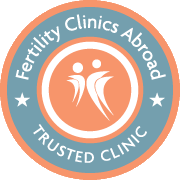Miscarriage: Will I ever get pregnant again?
by Ermina Konstantinidou, last updated 22 Jul 2022,
4 min read
A miscarriage, otherwise known as spontaneous abortion or pregnancy loss, is characterized the fetal loss before the embryo is deemed viable. This cold definition cannot begin to describe how painful, disheartening, and distressful experiencing a miscarriage can be. Many women who go through this experience tend to wrongly blame themselves and are left with a bitter lingering question of whether they will ever be able to experience motherhood.
The sad reality is, miscarriages are relatively common. About 20% of diagnosed pregnancies will end in a miscarriage, and most pregnancies will end within the first trimester. That percentage is believed to be higher, since many women miscarry before they even find out they were pregnant in the first place.
What causes a miscarriage?
In most cases, genetic abnormalities of the embryo are to be blamed for pregnancy loss, especially during the first trimester. Other common causes can be considered: infections, diabetes, unregulated thyroid, uterine abnormalities, cervical insufficiency, and substance abuse.
Does one miscarriage mean you will have another one?
It is perfectly normal to worry about this; unfortunately, there is no guarantee that you will not be facing a similar situation next time. However, in most cases, early miscarriages are one-time events, and the likelihood of your next pregnancy being full-term is very high.
The risk of miscarriage in a possible new pregnancy continues to be around 20% following the first miscarriage. After two back to back miscarriages, that risk increases to 28%, and following three or more miscarriages, that risk increases to around 43%. It should be noted that in most cases, women can successfully have a live birth even after three miscarriages in a row.
Will it impact your fertility?
In the majority of cases, fertility will not be affected. When a miscarriage occurs during early pregnancy, it is highly unlikely that it will cause any uterine problems that will negatively impact a future pregnancy.
Of course, in some cases, a miscarriage will need to be dealt with in an operative manner where it will require tissue removal through a procedure called dilation and curettage (D&C). This procedure should not permanently affect the mother's uterus as long as it is completed under proper medical care.
What tests should you perform after miscarrying?
Testing is not usually recommended after just one miscarriage. However, after consecutive miscarriages, your doctor may recommend testing to investigate if there is an underlying cause for pregnancy loss before trying to conceive again.
Typical testing may include:
- Blood tests to check for hormonal (e.g., thyroid), clotting, or autoimmune issues
- Genetic-Karyotype testing to see if there are any abnormalities that could lead to a chromosomally abnormal embryo
- An ultrasound to evaluate the uterus, ovaries, and fallopian tubes
- A hysterosalpingography or a sonohysterography to visualize the uterus and fallopian tubes
- A hysteroscopy to evaluate the uterine cavity with the use of a camera
Kindly note that not all the aforementioned investigations will be required to be performed after pregnancy loss. Your medical team will suggest the appropriate testing for your case based on your medical history.
When should I try again?
Physically, intercourse can be resumed after all the symptoms of miscarriage, such as pain and bleeding, are completely gone to minimize the risk of infection, but many times your doctor may advise you to also wait for at least one full menstrual cycle to pass before trying to conceive again. The waiting period may be further delayed should an infection occur following the miscarriage, if testing to investigate the reason for the miscarriage has been performed, or if the miscarriage was due to ectopic or molar pregnancy.
Of course, emotionally, you may not be ready to resume trying for a pregnancy right away. Pregnancy loss is a very traumatic experience; therefore, there may be many reasons you may need to prioritize your mental health and state before trying again despite being physically ready.
What can I do to have a healthy pregnancy?
Unfortunately, there isn’t a specific course of action that could prevent miscarriage. The only thing you can do is to try to lead a healthy and active lifestyle and take care of your physical and mental health.
On a final note, please remember that there is no right or wrong way to process a miscarriage. For most people trying to become parents, the odds of creating the family of their dreams after a miscarriage are in their favour. No matter how things progress, know that you are not alone.
If you would like to find more information about miscarriages and how we can help you on your fertility journey, you can contact us by clicking here. Our medical team will be more than happy to assess your case and recommend the best course of action in your case.

Ermina is a Midwife and an International Patient Coordinator at Newlife IVF Greece.










